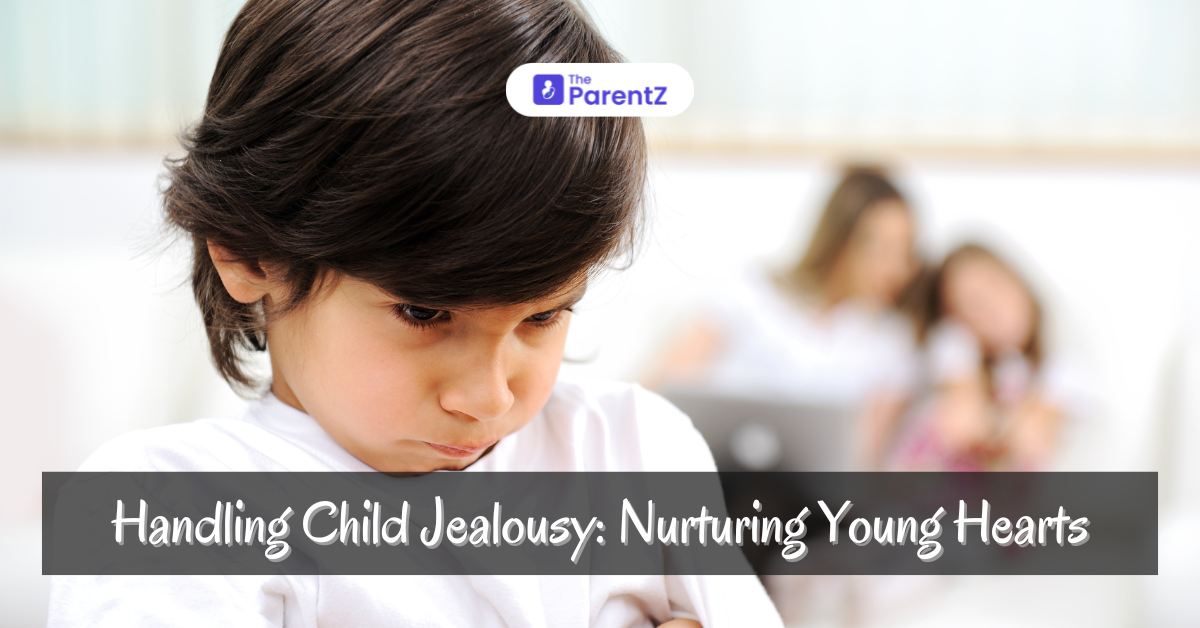Do you remember when your little sibling was born? You might have been thrilled initially, but a strange feeling soon crept in. You suddenly felt left out, like your parents' attention was divided. It might have been your first taste of child jealousy, a feeling that you understand was completely normal looking back. But at the time, it was a confusing and sometimes overwhelming emotion.
Child jealousy is a common experience. It's a natural part of growing up as children learn to navigate their world and understand their place in it. They see what others have and often desire the same. However, this feeling can escalate, causing distress to both the child and their family. Understanding the roots of childhood jealousy, recognizing its signs, and responding appropriately is crucial. This knowledge allows parents to guide their children through this development phase.
The Green-Eyed Monster: Understanding Childhood Jealousy
Jealousy in children often stems from a need for attention, security, and a sense of self-worth. It can be triggered by various factors, including the arrival of a new sibling, a friend's success, or even a parent's focus on another child or activity. The underlying psychological reason for this feeling is often rooted in fear of losing love or feeling inadequate.
When this jealousy goes unchecked, it can lead to behavioral issues such as tantrums, aggression, or withdrawal. It can also influence a child's self-esteem and their relationships with others. In the long run, persistent jealousy can hinder a child's emotional development and social skills.
Root Causes and Psychological Reasons
The roots of childhood jealousy can often be traced back to a few key factors:
- Insecurity: Children may feel insecure about their place in the family or their abilities compared to others. This insecurity can manifest as jealousy when they perceive others as having advantages.
- Comparison: Children naturally compare themselves to their peers. When they feel they fall short, jealousy can arise. This is particularly prevalent in environments where competition is encouraged, such as schools or sports.
- Parental Attention: Children often vie for their parents' attention. They may react with jealousy if they sense that a sibling or peer receives more affection or validation.
- Social Media Influence: In today's digital age, social media can exacerbate feelings of jealousy. Children are exposed to curated images of others' lives, leading to unrealistic comparisons and feelings of inadequacy.
Identifying Child Jealousy Early
Recognizing the signs of jealousy in children is important for addressing it effectively. Parents should look for behavioral changes, such as withdrawal, sulking, or acting out when a sibling or peer receives attention. Open communication is essential; parents should encourage their children to voice their feelings without fear of judgment.
Strategies for Parents
- Validation: Acknowledge that feeling jealous is normal. Use phrases like, "It's okay to feel jealous sometimes; it shows you care." This validation helps children feel understood and less isolated in their emotions.
- Encourage Empathy: Teach children to recognize and understand the feelings of others. Discuss how jealousy can affect relationships and encourage them to consider how their actions impact their siblings or friends.
- Promote Individuality: Celebrate each child's unique strengths and interests. This helps foster a sense of self-worth that does not rely on comparisons with others.
- Quality Time: Spend one-on-one time with each child to reinforce their importance and reduce feelings of competition for parental attention.
- Model Healthy Behaviors: Children learn by example. Demonstrate how to handle jealousy constructively, showing empathy and understanding in your interactions.
The Impact of Unchecked Jealousy
When jealousy goes unchecked, it can lead to several negative consequences:
- Strained Relationships: Jealousy can create rifts between siblings or friends, leading to ongoing conflict and resentment.
- Low Self-Esteem: Persistent jealousy can contribute to long-term self-esteem issues, as children may internalize feelings of inadequacy.
- Behavioral Issues: Jealousy can manifest in aggressive or withdrawn behaviors, affecting a child's social interactions and academic performance.
- Future Consequences: If not addressed, jealousy can carry into adulthood, affecting personal relationships and professional dynamics.
Conclusion
Remember, jealousy is a normal emotion, but how we handle it shapes a child's emotional well-being. Understanding jealousy's roots and executing effective strategies can help our kids develop healthy coping mechanisms and strong, resilient qualities.
It's important to understand this issue and avoid blaming yourself or your child. Jealousy is a complicated emotion that can be successfully managed with patience and support.





Be the first one to comment on this story.